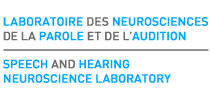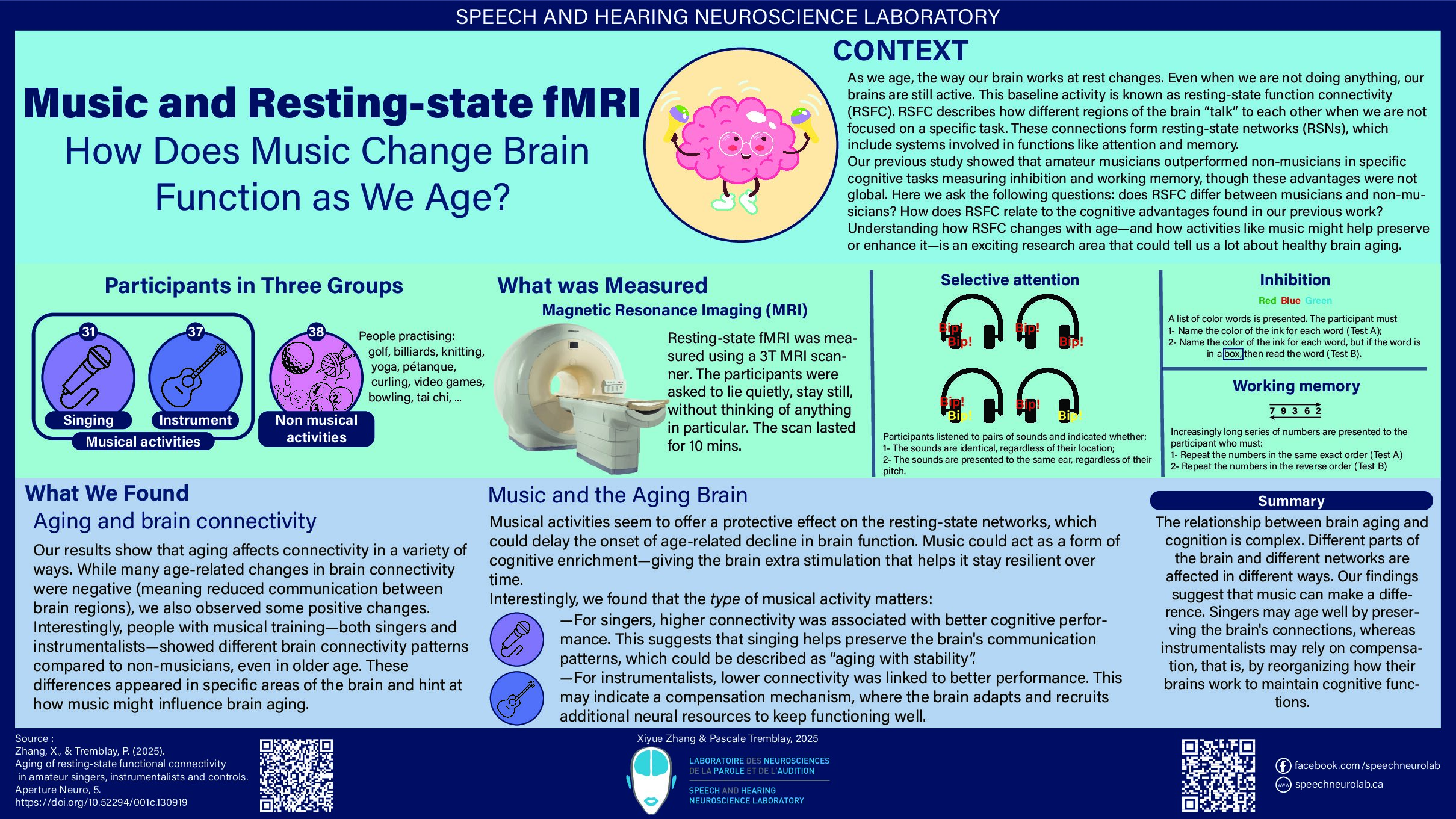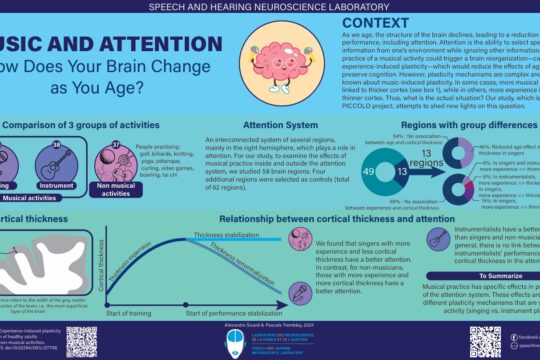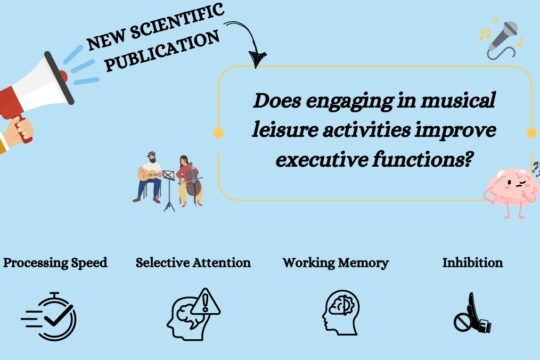
With Easter approaching, are you looking for an excuse to eat chocolate? Although this candy contains a lot of sugar and should be consumed with moderation, the flavonoids contained in cocoa could have a positive effect on cognitive functions, including language!
You read that right, eating chocolate could have beneficial effects on the brain!
Chocolate is primarily made up of two ingredients: non-fat cocoa solids and cocoa butter. Both come from ground, roasted, shelled and fermented cocoa beans, as well as sugar. Together, these ingredients form cocoa liquor. Cocoa powder is made by removing some of the cocoa butter from the liquor. We all know that there are multiple kinds of chocolate: dark chocolate, milk chocolate and white chocolate. But did you know that the darkness of chocolate is determined by the proportion of cocoa liquor? Dark chocolate contains between 35% and 100% of cocoa liquor. Milk chocolate usually contains a smaller amount (but at least 25%) and condensed or powdered milk is added to the mix. White chocolate, on the other hand, contains only cocoa butter and dairy ingredients (Katz & al., 2011).
Each ingredient that makes up chocolate has different effects on the human body. One of the ingredients is cocoa liquor, which contains several bioactive compounds. Cocoa butter is another ingredient that contains more fatty acids. Fat-free cocoa solids are also part of the recipe and contain vitamins, fibre, minerals and polyphenols. It is the flavonoids (organic molecules of plant origin from the polyphenol family), which give a bitter taste to dark chocolate (Katz & al., 2011), and which would also be responsible for the effects of chocolate on the brain. Dark chocolate, in particular, is said to have the ability to (temporarily) increase cognitive functioning because it contains more flavonoids than other types of chocolate (Socci & al., 2017).
Flavonoids could have a protective effect on neurons, stimulate their regeneration and improve their functioning. Flavonoids have the ability to cross the blood-brain barrier, a physical barrier that selectively filters what enters the brain from the bloodstream. They have been found in certain areas of the brain responsible for learning and memory, such as the hippocampus, the cerebral cortex and the cerebellum (Socci & al., 2017). Thus, flavonoids from food, such as those from cocoa, are likely to influence cognitive performance and memory. They would also act on the main mechanisms responsible for the acquisition and consolidation of memories, as well as their storage in memory (Spencer, 2008).
Studies examining the effects of daily administration of cocoa flavonoids have observed a beneficial effect on cognitive functions. After administration of a visuo-spatial working memory test, Camfield and colleagues (2012) observed that working memory was improved in subjects who consumed 250 or 500 mg of flavanols, a type of flavonoid, over a period of 30 days (Camfield & al., 2012) compared them to those who consumed a beverage containing a placebo. Another research team observed that people who consumed beverages containing cocoa with 993 or 520 mg of flavanol every day for 8 weeks performed better on a verbal fluency test, where they had to name as many words as possible belonging to a category in 60 seconds (i.e., a verbal fluency task), compared to the control group, i.e., the group of people who consumed beverages containing only 48 mg of flavanol (Mastroiacovo & al., 2015). Another research group also observed increased global cognition scores after daily consumption of beverages containing 494 mg of flavanol for 28 days. Participants performed better on tasks measuring executive functions such as long-term memory, attention and information processing speed (Neshatdoust & al., 2016).
In a study by Desideri and colleagues (2012), the cognitive effects of cocoa flavanol administration on cognition were assessed. 90 elderly participants with mild cognitive impairment consumed beverages containing different amounts of flavanol (990 mg, 520 mg or 45 mg) for 8 weeks. For two of the three tests performed, the performance of participants who consumed a high or intermediate amount of flavanol was better than that of participants who consumed a low amount, i.e., 45 mg. Groups that consumed more beverages high in flavanol took less time to complete the Trail Making Test (A and B), which assesses executive functions, and had higher scores on a verbal fluency test. However, there was no difference in performance between the three groups on the Mini Mental State Examination, a tool that assesses general cognitive functions. Researchers concluded that prolonged administration of large amounts of cocoa flavanol was associated with improved processing speed, executive functions, and working memory in people with mild cognitive impairment (Desideri & al., 2012). For us, with our interest in brain plasticity and the maintenance of cognitive and language skills with age, these results are particularly interesting! However, not all studies on this subject have yielded positive results. While many suggest short-term benefits on cognitive functioning, others do not observe such benefits. For example, Crews and colleagues (2008) studied the effects of consuming chocolate bars and beverages containing 397 or 357 mg of flavanols for 6 weeks. No effect was noted on cognition. It is possible that, in these studies, flavanol were consumed in insufficient quantities to produce a beneficial effect (Socci & al., 2017). There is therefore still much to learn about the potential effects of flavonoids, and more broadly of polyphenols, on the brain and cognition.
All that said, one should keep in mind that chocolate is rich in fat and sugar. Flavonoid is not the only ingredients and it is possible that the other components affect their absorption. For instance, the milk in milk chocolate slows the intestinal absorption of flavonoids (Latif, 2013). The studies presented in this article are rather representative of the effects that the flavonoids in dark chocolate could have on our brain rather than being representative of the effect of the flavonoids combined with other ingredients.
To conclude, the effects of flavonoids—and by extension chocolate—on the human brain are not yet fully understood. Importantly, whether consuming chocolate is as effective as consuming pure flavanol—which are much less interesting in terms of taste—remains unknown. Since flavanol is only one of the ingredients of chocolate, and given that there is a lot of sugar and fat in chocolate, it appears reasonable to consume chocolate with moderation. That being said, we wish you all a happy Easter! Enjoy your chocolate (ideally with some moderation)!
Suggested readings:
References:
Camfield, D., Scholey, A., Pipingas, A., Silberstein, R., Kras, M., Nolidin, K., & al. (2012). Steady state visually evoked potential (SSVEP) topography changes associated with cocoa flavanol consumption. Physiol Behav, 105(4), 948-57. doi :10.1016/j.physbeh.2011.11.013
Crews, W., Harrison, D., Wright, J. (2008). A double-blind, placebo-controlled, randomized trial of the effects of dark chocolate and cocoa on variables associated with neuropsychocological functioning and cardiovascular health: clinical findings from a sample of healthy, cognitively intact older adults. Am J Clin Nutr , 87(4), 872-80. doi :10.1093/ ajcn /87.4.872
Desideri, G., Kwik-Uribe, C., Grassi, D., Necozione, S., Ghiadoni, L., Mastroiacovo, D., & al. (2012). Benefits in cognitive function, blood pressure, and insulin resistance through cocoa flavanol consumption in elderly subjects with mild cognitive impairment: the Cocoa, Cognition, and Aging (CoCoA) study. Hypertension, 60(3), 794-801. doi:10.1161/HYPERTENSIONAHA.112.193060
Katz, D., Doughty, K., & Ali, A. (2011). Cocoa and Chocolate in Human Health and Disease. Antioxid Redox Signal., 15(10), 2779-2811. doi :10.1089/ars.2010.3697
Latif, R. (2013). Chocolate/cocoa and human health: a review. Neth J Med. 71(2), 63-8.
Mastroiacovo, D., Kwik-Uribe, C., Grassi, D., Necozione, S., Raffaele, A., Pistacchio, L., & al. (2015). Cocoa flavanol consumption improves cognitive function, blood pressure control, and metabolic profile in elderly subjects: the Cocoa, Cognition, and Aging (CoCoA) Study-a randomized controlled trial. Am J Clin Nutr, 101(3), 538-48. doi : 10.3945/ajcn.114.092189
Neshatdoust, S., Saunders, C., Castle, S., Vauzour, D., Williams, C., Butler, L., & al. (2016). High flavonoid intake induces cognitive improvements linked to changes in serum brain-derived neurotrophic factor: two randomized, controlled trials. Nutr Healthy Aging , 4(1), 81-93. Doi : 10.3233/NHA-1615
Socci, V., Tempesta, D., Desideri, G., De Gennaro, L., & Ferrara, M. (2017). Enhancing Human Cognition with Cocoa Flavonoids. Front Nutr., 4, 19. Doi: 10.3389/fnut.2017.00019
Spencer, J. (2008). Food for thought: the role of dietary flavonoids in enhancing human memory, learning and neuro-cognitive performance. Nutrition Society, 67, 238-252. doi : 10.1017/S0029665108007088
Sumiyoshi, E., Matsuzaki, K. Sugimoto, N., Tanabe, Y., Hara, T., & al. (2019). Sub-Chronic Consumption of Dark Chocolate Enhances Cognitive Function and Realeses Nerve Growth Factors: A Parallel-Group Randomized Trial. Nutrients., 11(11), 2800. doi : 10.3390/nu11112800



